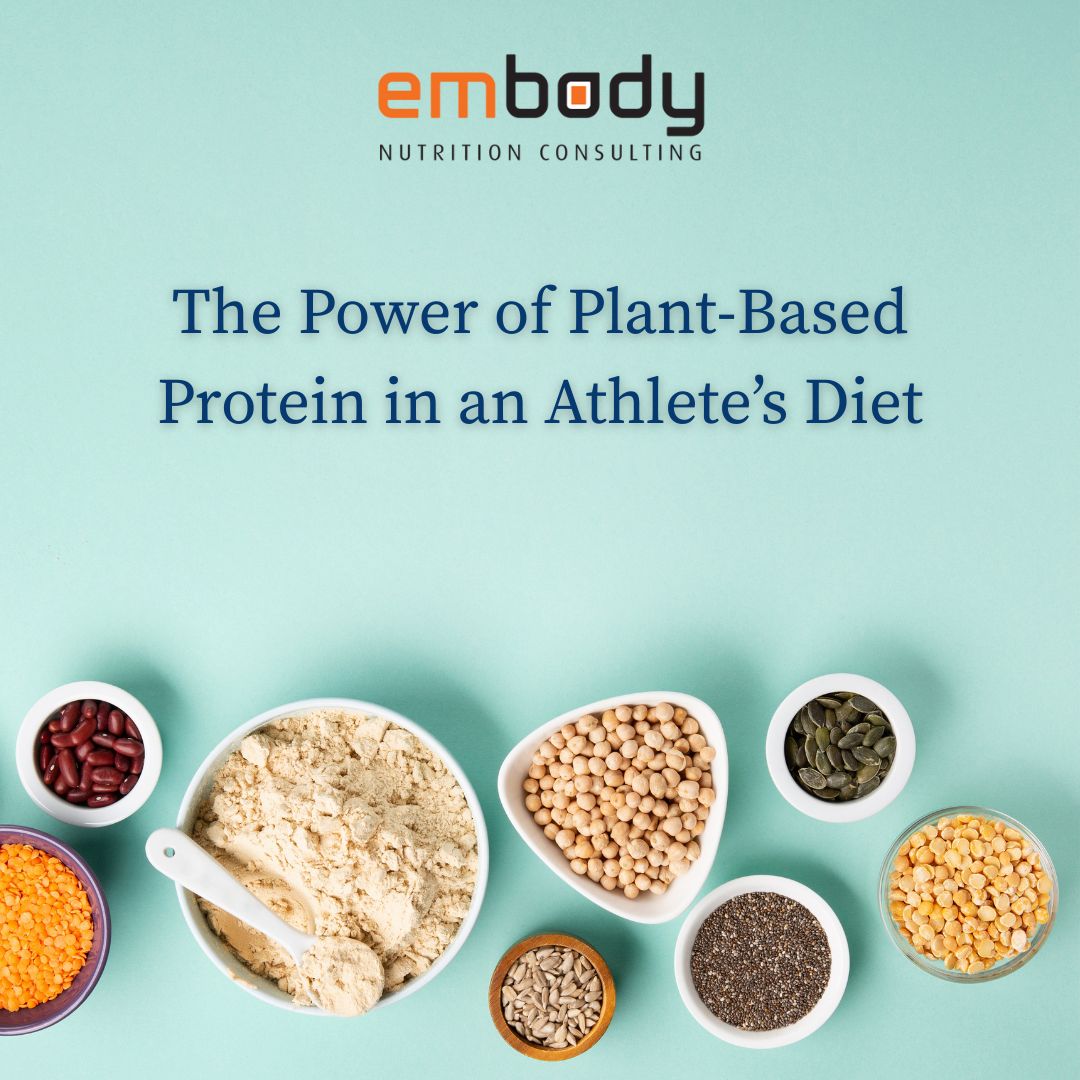Would you believe me if I told you that plant-based eating was recognised as a top 3 global food trend? With its dramatic rise in popularity, it seems that not even athletes are a stranger to all things plant-based, especially plant-based proteins.
This article will delve into plant-based proteins and explore their benefits, challenges and bust some myths to aid athletes to potentially include plant-based proteins in their diet. With consideration and planning, athletes can harness the power of plants to help meet their daily protein needs in a performance focused diet.
What is protein and what role does it play for athletic performance?
Protein is an essential nutrient found in foods. It plays a primary role in the synthesis of new body tissues, supports our metabolism, and helps keep us full. In an active body, consumption of protein also helps to restore and repair muscles, enhancing athletes’ strength, endurance, and adaption time.
Benefits of plant-based proteins
Plant-based proteins refer to the protein found in non-animal products and are sourced from plants. There are many benefits to including plant proteins in your diet to support athletic performance. Evidence even suggests that following high protein plant-based diets has shown an increase in active adult’s muscle mass and overall strength.
You may want to eat plant-based proteins as a means to include more micronutrients, not usually found in animal products. They are packed with fibre, polyphenols and phytates found to promote digestion, support gut health, and reduce oxidative stress and inflammation in athletes. Also low in saturated fat, plant proteins may also reduce risk of chronic heart disease and improve cardiovascular function.
Challenges of plant-based protein
It is also important to consider that there are certain challenges faced when including plant-based proteins in an athlete’s diet. Plant proteins are generally less efficiently absorbed in the body, when compared to animal-based proteins. Whilst individual requirements for protein may vary, commonly amongst athletes and active people they need anywhere between 1.6-2.2g per kilogram of bodyweight per day. This is something to consider when including plant-based protein in an athlete’s diet as they may need to consume larger quantities of plant protein in meals to meet their protein goals. When consuming larger quantities consistently, this could lead to a higher overall energy intake throughout the day. In a performance focused diet, athletes could consider using plant proteins as an added source of protein to help meet needs, rather than substitute animal-based protein altogether.
Plant proteins are also only a source of non-heme iron which is less bioavailable than heme iron found in animal products. It is important to consider that if you are choosing to eat less animal-based protein in your diet, you should work with your doctor or dietitian to closely monitor your iron levels.
Despite the challenges, including plant proteins in your diet can also be extremely beneficial to your health and athletic performance. If it seems right for you, try eating a wide variety of both plant and animal proteins in your everyday diet.
Sources of plant-based proteins for athletes
Here are some great sources of plant-based proteins that you can incorporate into your everyday diet.
- Soy based products are derived from soybeans and are a naturally great source of protein. Consider trying soy products such as tofu for breakfast prepared as a tofu scramble, edamame beans served as a savoury snack or adding sautéed tempeh as the perfect addition to your vegetable stir fry.
- Don’t forget to not overlook the humble soybean themselves. Packed with protein and versatile, once they are cooked, they can be added to your salads, curries, or stews.
- Legumes are also another ingredient that are high in protein, are adaptable and a cost-effective option. Consider pairing hummus made from chickpeas with veggies for your next afternoon snack, or including black beans into your beef tacos for dinner.
- Lentils are a fibre fuelled, protein powerhouse. With a neutral flavour palette, they can be used to elevate a hearty soup, spicy curry, tossed into a salad or even served in your weekly spaghetti bolognaise.
- Quinoa is always a crowd favourite amongst those looking for a source of grain high in protein. Try accompanying quinoa in a salmon bowl with avocado and roasted sweet potato.
- Finally, you can never go wrong sprinkling nuts and seeds on your next breakfast bowl or salad. Some options include peanuts and almonds for nuts and hemp seeds, chia seeds and pepitas for seeds.
Myths about plant-based proteins and sport performance
Myth: “Plant proteins are incomplete compared to animal proteins”
Reality: It is a common misconception that plant proteins lack certain amino acids, the building blocks of protein. However, eating a wide variety of plant proteins throughout the day is more than sufficient to provide you with every amino acid your body needs just as “complete” as animal proteins would.
Myth: “Plant proteins can’t help in muscle tissue growth”
Reality: In this case, protein is protein and consuming enough of a plant-based source in your diet can help with increasing muscle mass. Researched evidence suggests that following a high protein plant and animal-based diet of at least 1.6g per kilogram per day may support increases in mass and strength in healthy and physically active adults, when taking part in strength training.

